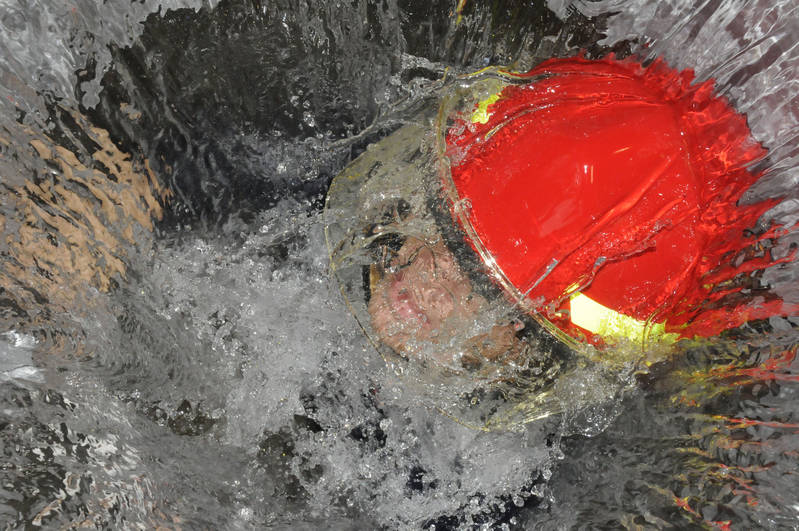
Welcome to MSW’s Scuttlebutt! Here’s the news for the day.

Feature - HMS Iron Duke
MSW Crewmember Phil Reeder (onslow) shows off his HMS Iron Duke built from the WEM 1/350 kit.. Enjoy.

Roughead Urges More Naval Cooperation
Source: US Department of Defense
WASHINGTON --- International cooperation is the currency of naval power today, the chief of naval operations said today. Navy Adm. Gary Roughead cited a need to boost the effectiveness of this cooperation during a speech at the Naval War College’s International Seapower Symposium in Newport, R.I.
Naval cooperation is the cornerstone of America’s maritime strategy detailed in a 2007 document, Cooperative Strategy for 21st Century Seapower, Roughead said.
“That strategy, with conflict prevention and international partnerships at its core, has served our Navy and our nation exceedingly well and continues to guide our thoughts, our plans and our actions,” he said.
Global maritime partnership is a central aspect of the strategy. “The U.S. services’ interest in global maritime partnership stems from our desire to seek out cooperative approaches to maritime security and promoting the rule of law,” the admiral said.
This fits in with the greater U.S. strategy that one country can’t do it all.
Personal trust is the cornerstone of maritime cooperation, the admiral said. “Trust cannot be surged,” he said. “With that as my guiding principle, I have spent the past two years traveling the globe, meeting with many of you and learning from your experiences so that I can better understand your concerns and proposals to make the maritime domain a safer place.”
Personal military-to-military relationships are the first step in building trust, said Roughead, who has met with many naval leaders in their countries and in the United States. He said he values these relationships and uses them in the everyday missions of the U.S. Navy.
“Indeed, in those moments when disaster or crisis demand the most from us, our relationships may yet pay the highest dividend,” he said. Navies need to know how to work together before a crisis or disaster hits, he added.
“These efforts confirm that there need be no contradiction between defending our country's sovereign rights and sailing together, against the common threats to our welfare,” he said.
A prime example of this is in the Straits of Malacca patrols by Indonesia, Malaysia, Singapore and Thailand. This has drastically reduced piracy in those waterways, he said.
The Economic Community of Central African States is another example. These nations agreed to work together on patrolling waters of mutual interest and to monitor an operations center in Cameroon.
Making this international cooperation more effective is important for the future, he said. Information sharing and the pursuit of maritime domain awareness remain focuses for partner nations.
“Our goal should now be to bridge the regional security awareness initiatives in support of yet broader awareness and partnerships,” Roughead said. “Besides information-sharing, we must also work toward greater interoperability. There are many ways to improve our interoperability and lessons learned of how to work together. Those lessons start again at the personal level.”
Senior level partnerships are important, but it is on the decks of ships where the partnerships pay off. Roughead wants to expand the international partnerships “to encourage the interaction of our young sailors and noncommissioned officers and officers. I do not think we can underestimate the lasting benefit of such contact.
“In an age of instant communication and even imperfect translation software, we have unparalleled opportunity to ensure that the naval chiefs a generation from now will have known each other since their earliest days at sea, regardless of distance or language differences,” he said.
Training together and exercising together remain the best ways to facilitate this communication, Roughead said, adding that he wants to expand these opportunities also.
“Ultimately, the time we spend learning and improving interoperability is time well spent when it comes to issues of maritime security,” the admiral said. “There is perhaps no better example today of maritime partnerships than the work so many of us are doing against piracy, the Navy’s oldest foe, in the Gulf of Aden.
“The presence there of navies from all over the world is truly unprecedented, and very much needed for a security challenge that affects such a large ocean area,” he said.
Roughead urged the symposium members to use the time together at Newport as a way to further cooperation among navies.
“Common use of the high seas has been a driver of international cooperation and institution-building for centuries,” he said. “Today, in the early years of the 21st century, I am convinced that our new partnerships – informal as well as formal, local as well as global – are writing a new chapter in the development of international society.”
The symposium, in its 40th year, brings together leaders of the world’s navies. The first symposium in 1969 attracted representatives from 37 nations. The current iteration had representatives from more than 100 countries.
FREMM Multimission Frigates: DCNS Prime Contractor for Europe’s Largest Naval Defence Programme
Source: DCNS
DCNS has signed an order supplement for three new vessels under the European FREMM multimission frigate programme. This brings France’s total order to 11 vessels, scheduled for delivery from 2012 to 2022.
Contract confirmation was announced today by the French Minister for Defence, Mr Hervé Morin, at the production launch of France’s second multimission frigate in the series, the Normandie.
This amendment to the FREMM multimission frigate contract calls for the development and construction of three additional vessels, [of which] two in air defence configuration, as well as capability enhancements for all frigates in the series and a delivery schedule of one vessel every 10 months. It also calls for operational support for these state-of-the-art vessels in their first years of service.
“I would like to thank the French defence procurement agency and the Navy for their support and the confidence they have placed in us,” said Patrick Boissier, Chairman & CEO of DCNS. “DCNS is proud to be part of Europe’s most ambitious naval cooperation programme and contribute to this new chapter in the construction of a Europe-wide naval defence community. A project on this scale is a remarkable human adventure as well as an industrial challenge and shows what our teams are able to design and build to meet the emerging requirements of our customers.”
With one vessel delivered every 10 months, the programme represents a significant increase in workload for DCNS and its industrial partners. The Brittany region of France will be the main beneficiaries in terms of employment. The FREMM project provides 3 million hours of employment each year and almost 50 million hours over the duration of the programme, which runs from 2006 to 2022. Each frigate is equivalent to the construction of two Millau viaducts.
The FREMM frigates are the most technologically advanced as well as the most competitive vessels on the market. Built under DCNS prime contractorship, they are heavily armed and carry state-of-the-art weapon systems and equipment, including the Herakles multifunction radar, MU90 torpedoes and Aster and Exocet MM40 missiles.
The FREMM frigates are highly automated to allow reduced crewing. They are inherently versatile to provide a response to all types of threats. World-leading innovation ensures that they offer unparalleled levels of interoperability and readiness. And with their intrinsic flexibility, they can match the requirements of most DCNS customers around the world, as demonstrated by our recent success in Morocco.

Norway Begins Shipboard Testing of NH-90
Source: Norwegian Armed Forces
Yesterday Norway’s new NH-90 helicopter landed for the first time on a Coast Guard vessel of the North Cape-class. This happened at Helligvær, in Vestfjorden, initially under very good weather conditions.
The Coast Guard vessel Nordkapp will in future be the platform for operational testing of the NH90, which will determine if the helicopter meets requirements for take-off and landing, especially in terms of the ship’s pitch and roll movements.
Yesterday's test began with the synchronization of the measurement equipment, and testing of radio equipment on the deck and around the vessel. Eventually, the take-off and landing tested, as the ship’s movements began to increase.
The tests yesterday started under very favorable weather conditions, but with a storm warning for the afternoon as conditions deteriorated rapidly. Conditions deteriorated rapidly, with high winds from the south-west gusting up to 60 knots.
I regard the current tests for very successful, "says Commander Charles Blaalid, commander of the KV Nordkapp.
Lt. Col. Ivar Dyrdal, NH-90 project manager at FLO (Forsvarets logistikkorganisasjon, the Norwegian defence logistics organization) says that delivery of NHI NH90 is expected to begin during the second half of 2010.
The current tests are part of the qualification tests that industry conducts to demonstrate that the helicopters meet the contract requirements.
“When the helicopters arrive in Norway, the military will still have a period in front of them for training and experience-building before the system can be phased in and become 100% operational,” stresses Lt. Col0 Dyrdal.

Tsushima.su
Today’s website is Tsushima.su. The site covers Naval History for the period of 1855-1945, including History of Shipbuilding and Naval Warfare in the era of Ironclad Battleships. There is also a considerable library and a large photo collection. Enjoy.
This Day in U.S. Naval History
1846 - Lavinia Fanning Watson of Philadelphia christens the sloop-of-war Germantown, the first U.S. Navy ship sponsored by a woman.
1951 - First of seven detonations, Operation Buster-Jangle nuclear test.
1962 - President John F. Kennedy orders a surface blockade (quarantine) of Cuba to prevent Soviet offensive weapons from reaching Cuba during the Cuban Missile Crisis.
Photo of the Day

Damage Controlman 2nd Class Ken Wiseman climbs up a flooded hatch during damage control training at the Center of Naval Engineering Learning Site Pearl Harbor.
Gator











